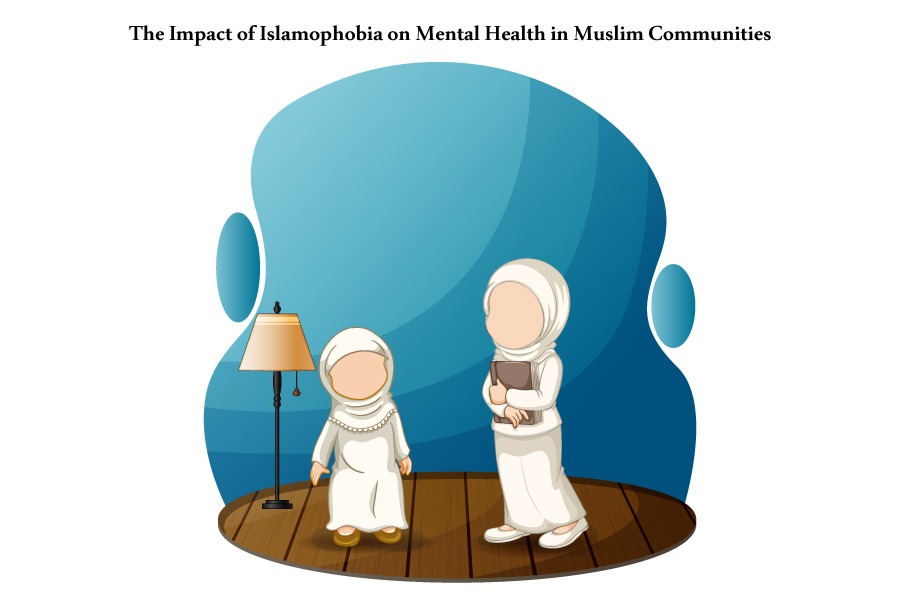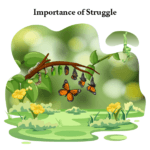Unveiling the Reality: What is Islamophobia?
Discrimination Against Muslims
Islamophobia. The term feels like a mouthful, doesn’t it? But in reality, it’s quite simple. Imagine being considered suspicious for just wearing a hijab or having a beard. Sounds absurd? Unfortunately, it’s an everyday reality for many Muslims in North America.
Islamophobia refers to the irrational fear, hatred, or prejudice against Islam and Muslims. But here’s the twist – just like that spicy kick in your favorite dish – not many realize its lingering effects of discrimination against muslims on the mental health of the Muslim community.
So, what’s the fuss about?
Historical Context
Discrimination against Muslims is nothing new; it’s been around for a long time. It’s deeply connected to our history and often happens because people don’t understand or have wrong ideas about Muslims. Sometimes, it’s just because they don’t know much about them. To stop this discrimination against Muslims, we must educate ourselves and others, learn about different cultures, and challenge the misconceptions and biases that fuel it.
Modern Manifestations
Post 9/11, there was a significant spike in Islamophobic incidents, painting an entire community with a broad brush because of the actions of a few.What happened was that some people started to blame the whole Muslim community for the actions of a few extremists who were responsible for the 9/11 attacks. This was like using a really wide brush to paint everyone in the Muslim community with the same negative picture, even though the vast majority of Muslims had nothing to do with those terrible events
The News and Media Factor
We’ve all seen that movie or news segment where the ‘bad guy’ is, you guessed it, a Muslim. Such portrayals further entrench stereotypes.
Alright, enough of the gloomy stuff. Let’s dive deeper and understand the real cost of this discrimination.
The Mental Health Toll: Understanding the Impact
Did you ever get that sinking feeling when someone judged you for no reason? Now, imagine facing that scrutiny daily. No wonder it takes a toll on mental health! But let’s not just rely on imagination. Here’s the science behind it:
Anxiety & Stress
Discrimination against Muslims can lead to heightened anxiety levels. Being on the constant lookout, fearing a misplaced word or action might lead to being stereotyped, is exhausting.
Depression
Constant negativity can lead to feelings of isolation and sadness. This often morphs into depression, a silent battle many Muslims face.
Identity Crisis
Balancing cultural identity and the desire to fit in creates a whirlwind of emotions, leading to an identity crisis among many young Muslims.
Have you ever felt out of place or misunderstood? Remember that feeling? Now, amplify it. That’s what many in the Muslim community experience daily.
Not Just An Individual Concern: The Community Ripple
While it’s easy to see this as an individual’s battle, the discrimination against Muslims affects entire communities. Ever thought about that? Here’s how:
Cultural Disconnect
There’s a growing hesitance to embrace one’s culture due to fear of prejudice. This creates a cultural gap between generations.
Economic Impact
Islamophobic sentiments often hinder job opportunities and economic advancement. So, next time you wonder why Ahmed from next door drives a cab despite having a Ph.D., remember, it might not be by choice. This tremendously skillful blood is ready to participate in global advancement.
Social Isolation
The need to ‘fit in’ makes many distance themselves from their roots. This often leads to a sense of isolation, even within their own communities.
It’s like throwing a pebble into a pond. The ripples it creates affect more than just the point of impact.
Breaking Myths: Hey, Not All Muslims…
There’s a long list of myths surrounding Muslims. Some are almost humorous, while others are downright ridiculous. Let’s break some, shall we?
All Muslims are Arab
Newsflash! Islam is a global religion. Not all Muslims are Arabs. Shocking, right?
Jihad means “Holy War”
Actually, Jihad translates to “struggle” or “effort” in Arabic. So, next time you’re struggling to get out of bed, guess what? You’re doing a bit of Jihad! If you struggle to fight against wrong, you are doing a bit of Jihad. Jihad is a complete science with logic and conditions, and it is to protect humanity, not to harm it in any way.
Muslim Women are Oppressed
Many choose to wear the hijab or burqa to express faith and identity. So, let’s not confuse choice with oppression.
Remember, when we let go of stereotypes and discrimination against Muslims, we make space for understanding and empathy. And isn’t the world in dire need of that?
Turning the Tide: Steps Towards a Brighter Tomorrow
While the journey ahead is long, there are glimmers of hope. Here’s how you can help turn the tide:
Educate Yourself
Before forming an opinion on Islam or Muslims, dive into authentic sources. A little knowledge goes a long way. Even Muslims, especially the young generation, need to read Islam deeply and carefully and know what Islam is all about. Learn the Quran, Hadit Seerah, so you can counter every misconception about Islam and perform your part in fighting against discrimination against Muslims.
Engage in Conversations
Got a colleague or neighbor with Islamophobic thoughts? Strike up a conversation. Understanding their perspective can be eye-opening.
Challenge Stereotypes
Call it out the next time someone cracks a misplaced joke or comment. Be the voice of reason.
Because remember, change begins at home.
Connecting the Dots: Islamophobia, Mental Health, and Society
The media often plays a significant role in perpetuating Islamophobic stereotypes. Combined with certain policies, it creates an environment where prejudice can thrive. But the repercussions of this aren’t limited to the Muslim community. A society that allows prejudice to flourish is fractured and weak, affecting everyone.
Efforts to Combat Islamophobia and its Impact
Despite the challenges, various grassroots movements and community initiatives in North America are tirelessly working to combat Islamophobia. They are supported by legal frameworks designed to protect minority rights. Educational institutions, too, have a pivotal role to play by developing an environment of understanding and acceptance.
Expert’s Opinion: Mental Health Professionals Weigh In
Renowned mental health professionals across North America have voiced their concerns about the psychological impact of Islamophobia on Muslim communities. They stress the importance of therapy, counseling, and community support in helping victims heal and cope.
Conclusion: Embracing a World Beyond Stereotypes
The tale of Islamophobia and its deep-seated impact on the mental health of Muslims in North America isn’t just a Muslim’s story; it’s a human story. A tale of understanding, empathy, and the dire need to look beyond the surface.
As we navigate the intricacies of a multicultural society, it’s paramount to challenge stereotypes about Muslims and any community. In understanding and empathy, we find the foundation of a world where mental well-being isn’t sacrificed at the altar of ignorance.
So, the next time you see a Muslim colleague, neighbor, or friend, maybe start with a simple “Hello!” and a smile. Sometimes, that’s all it takes to bridge a world of differences
FAQs About Discrimination Against Muslims
Q1. What is Islamophobia?
A. It is the unfounded fear or hatred towards Islam and its followers
Q2. How does Islamophobia affect mental health?
A. It leads to anxiety, depression, and prolonged psychological trauma, among other issues.
Q3. What role does the media play in propagating Islamophobia?
A. Certain media outlets can perpetuate stereotypes, further deepening misunderstandings.
Q4. Are there efforts to counteract the effects of Islamophobia?
A. Yes, through grassroots movements, legal frameworks, and educational initiatives.
Q5. What do experts say about the impact of Islamophobia on mental health?
A. They highlight the profound negative consequences and emphasize therapy and community support.
Q6. How can individuals help combat Islamophobia?
A. By educating themselves, spreading awareness, and opposing discrimination against Muslims.
Q7. How can Learning the Quran help fight against Islamophobia and discrimination against Muslims?
A. Quran is the complete guide to Islam. Understanding and learning the Quran can educate you to understand the true soul of Islam and its message to humanity. In this technical era, it is so easy to Learn the Quran Online and understand it in the comfort of your own home.

















